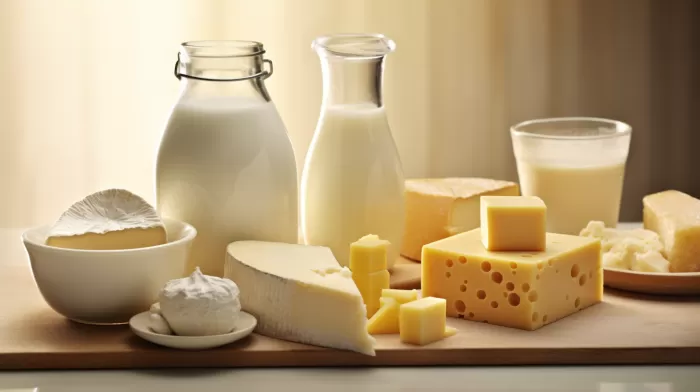One type of food that breast cancer patients should be wary of is high-fat dairy products. Research conducted at Kaiser Permanente Division of Research in Oakland, California, has shown that consuming these foods significantly increases the risk of death in breast cancer patients.
Previous research has demonstrated that lifetime exposure to estrogen is a pathway to breast cancer. Estrogen levels are thought to be high in dairy products, as most milk in the supermarket comes from pregnant cows. Estrogenic hormones are primarily found in fat, meaning high-fat dairy foods have higher estrogen levels than low-fat dairy products.
According to researcher Candyce H. Kroenke, “women consuming one or more servings per day of high-fat dairy had a 64 percent higher risk of dying from any cause and a 49 percent increased risk of dying from their breast cancer during the follow-up period (of our study).” The high-fat dairy products that were examined in this research included cream, whole milk, condensed or evaporated milk, pudding, ice cream, custard, flan, and non-low-fat or non-fat cheeses and yogurts.
The Dangers of High-Fat Dairy Products
Not only do high-fat dairy products increase the risk of death for breast cancer patients, but they also have negative health consequences for those without the disease. High-fat dairy products are high in saturated fat, which can raise cholesterol levels and lead to heart disease. Additionally, they typically contain more calories than their low-fat counterparts, contributing to weight gain and obesity if consumed in large amounts.
Some studies have also linked high-fat dairy products to an increased risk of certain cancers, including prostate cancer. In contrast, consuming low-fat dairy products has been associated with a reduced risk of developing certain types of cancer. It’s also worth noting that the hormones present in dairy products, such as estrogen and progesterone, may cause hormonal imbalances or promote the growth of hormone-sensitive cancers.
How Can You Protect Yourself?
While it’s essential to maintain a balanced diet that includes dairy products for their nutritional benefits, such as calcium and vitamin D, it’s crucial for breast cancer patients and others to be mindful of the type of dairy they consume. Here are some tips to help you make healthier choices when it comes to dairy products:
Choose Low-Fat or Non-Fat Dairy Products
Opt for low-fat or non-fat versions of milk, yogurt, and cheese. These options still provide essential nutrients without the risks associated with high-fat dairy products.
Limit Your Intake of High-Fat Dairy
If you choose to consume high-fat dairy products, do so in moderation. Try to limit your intake to occasional indulgences rather than daily staples.
Find Dairy Alternatives
Explore dairy alternatives that are lower in fat and hormones, such as almond milk, soy milk, and coconut milk. These options can provide similar nutritional benefits without the associated risks.
Focus on Whole Foods
Consuming a diet rich in whole foods, such as fruits, vegetables, lean proteins, and whole grains, can lower your risk of developing cancer and other health conditions. These nutrient-dense foods can also provide many of the same benefits as dairy products, such as calcium and vitamin D, without the added risks.
Stay Informed and Educated
Continuously educate yourself about which foods have the highest estrogen levels or other potential risks. Stay up to date on the latest research and recommendations to help make informed decisions about your diet and overall health.
The Power of Prevention
Preventing health issues, such as breast cancer or heart disease, is always preferable to treating them. When it comes to the food you consume, always be mindful of the choices you make and their potential impact on your health. By choosing lower-fat dairy products and consuming high-fat dairy products in moderation, you’re taking proactive steps to protect your overall well-being.



